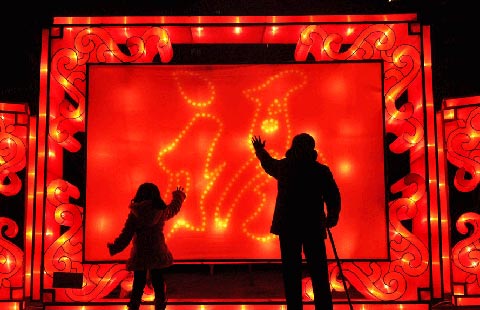Beijing subway fare rise justified
Updated: 2014-02-17 07:56
By Xue Lulu (China Daily)
|
|||||||||||
On the other end are cities like Hong Kong and Tokyo, which favor a higher fare and run public transport systems with nearly zero subsidy through diversified funding resources. Cities in the second group believe that a free market system is a more efficient, equitable way to run a subway.
While the jury is still out to determine which of the two extremes is most beneficial, many cities find a balancing point between the two ends of the spectrum. As a city belonging to the "public good" end of the spectrum, Beijing cannot attain public equity and social benefit by charging exceptionally low fare.
The social benefits that could have been gleaned from heavy government subsidies have been eroded by the Beijing subway's poor service quality. Its lack of comfort and reliability dissuade people from forgoing private cars and taxis in favor of riding the subway.
In fact, the share of trips made by automobiles in the city has risen from 23 percent to 33 percent since the beginning of Beijing's "subway boom." The increase in subway ridership during the same period can be partly attributed to the sharp decline in the number of cyclists - down from 50 percent in 2002 to 15 percent in 2011.
Beijing's low subway fare is not as pro-poor as is popularly believed. In reality, the low fares create a tax burden on all levels of society in order to fill operation deficits. Moreover, considering that the bulk of peak-hour riders are middle-class workers, the current fare structure grants them subsidy unnecessarily, depleting public funds that could otherwise go toward healthcare, pensions and education.
With Beijing's standard subway fare being too low to reap the equity and social benefits it intended to generate, a reasonable fare increase that would strike the right balance between public good and a free market approach to public transport fares is justified. Despite the painstaking process to overcome strong public objection, a reasonable fare structure is an appropriate step toward improving the quality of urban public transport in Beijing.
The author is an analyst at the World Resources Institute.
(China Daily 02/17/2014 page9)
Related Stories
4 new lines for Beijing subway in 2014 2014-02-07 15:38
Beijing subway network stretches to 465 km 2013-12-30 17:18
Beijing subway temporarily suspended after man jumps off platform 2013-11-12 14:24
Beijing subway line expands reach 2013-12-26 16:07
Today's Top News
Germany, France eye new data network
No much progress in Syria peace talks
Lantern Festival fires kill 6 in China
China urges US to respect history
KMT leader to visit mainland
11 terrorists dead in Xinjiang
Illegal detention reports probed
4 die in Austrian train-car crash
Hot Topics
Lunar probe , China growth forecasts, Emission rules get tougher, China seen through 'colored lens', International board,
Editor's Picks

|

|

|

|

|

|





